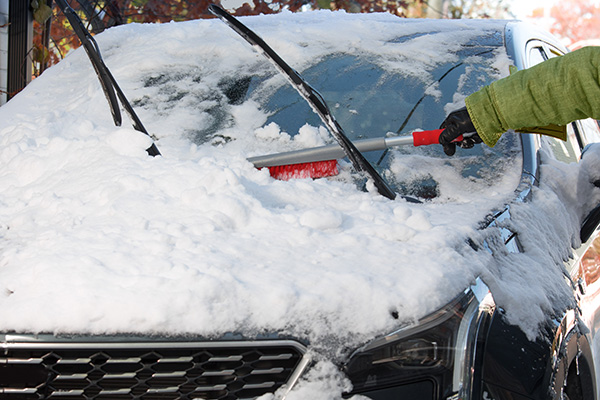
Winter can be harsh on your vehicle, and no one wants to find themselves stuck on the side of the road in freezing temperatures. The harsh cold can wreak havoc on your car, from frozen fluids to battery failures. That’s why taking the time for a pre-season inspection is essential to avoid winter car issues. A thorough check-up can help prevent costly breakdowns and ensure your vehicle is ready to tackle the winter months head-on. Whether you're driving through snowy roads or simply dealing with the temperature drop, here’s how a pre-season inspection can keep your car in top shape.
Why a Pre-Season Inspection is Necessary
Winter presents challenges that many vehicles aren’t fully equipped to handle if not properly prepared. A pre-season inspection is designed to assess the components of your car that are most vulnerable during the colder months. It allows you to catch minor issues before they become major problems when you need your car the most. But beyond just preventing breakdowns, an inspection gives you peace of mind knowing your vehicle is safe and ready for winter driving conditions.
Not only is it a smart move for safety, but it can also save you money. Emergency repairs or getting stuck in the snow can lead to unexpected costs that could be avoided with a simple inspection.
1. Battery Health
One of the most common causes of winter breakdowns is a weak or dead battery. Cold weather drains your car’s battery faster than usual, and if it’s already on its last leg, it’s likely to give out when you least expect it. As part of a pre-season inspection, checking your battery’s charge, terminals, and overall condition is crucial.
If your battery is over three years old or has shown signs of weakness, replacing it before winter hits is a wise choice. A battery failure can leave you stranded, and in cold weather, it’s even more of a hassle. During the inspection, the technician will test its voltage and ensure it’s equipped to handle winter’s low temperatures.
2. Fluids and Coolant
Winter temperatures can affect your car’s fluids, causing them to thicken and not perform as well. Checking the antifreeze or coolant levels is a critical part of the pre-season inspection. Antifreeze keeps your engine from freezing in low temperatures, and a proper balance between water and coolant is necessary to protect your engine during extreme cold.
Beyond antifreeze, it’s essential to check the condition and levels of other fluids, such as oil, brake fluid, and windshield washer fluid. Winter can be harsh on these liquids, making it important to ensure they’re topped up and clean. Some may require a winter-grade version that performs better in cold temperatures.
3. Tire Safety
Winter driving demands the right kind of tires to maintain safety on the road. The condition of your tires is crucial in providing the necessary traction, especially in icy or snowy conditions. A pre-season inspection will evaluate your tire tread depth, ensuring it’s within the recommended range for safe winter driving.
If your tires are worn out, consider replacing them with all-season or winter tires. Winter tires offer superior grip and braking performance in colder weather, making them an excellent choice for winter driving conditions.
In addition to tread depth, make sure your tires are properly inflated. Cold air causes tires to lose pressure, which can lead to reduced handling and fuel efficiency. Having your tires inspected and inflated to the correct pressure before winter sets in is key to avoiding any potential tire-related issues.
4. Wipers and Lights
Visibility is another major factor during winter driving. Fog, snow, and freezing rain can greatly reduce your ability to see the road. A pre-season inspection will check the condition of your windshield wipers to ensure they’re not worn or brittle. If necessary, replacing them with winter-grade wiper blades can improve their performance in harsh conditions.
Your car’s lights should also be inspected. Shorter daylight hours and poor weather conditions make it essential for your headlights, taillights, and brake lights to be in working order. Checking the brightness and alignment of your headlights can make a huge difference in visibility on the road.
5. Brakes
Brakes are always important, but during winter, they become even more critical. Icy roads reduce traction, which can affect your car’s ability to stop quickly and safely. A pre-season inspection should include a thorough brake check to ensure your pads, rotors, and brake fluid are all in good working order.
If your brakes are worn, don’t wait to have them repaired or replaced. Winter driving stresses your braking system, so ensuring everything is in top condition is vital for your safety on the road.
Winter is just around the corner, and it’s time to get your car ready. South Denver Automotive offers comprehensive pre-season inspections to ensure your vehicle is prepared for the cold months ahead. Book your inspection today and drive with confidence all winter long.